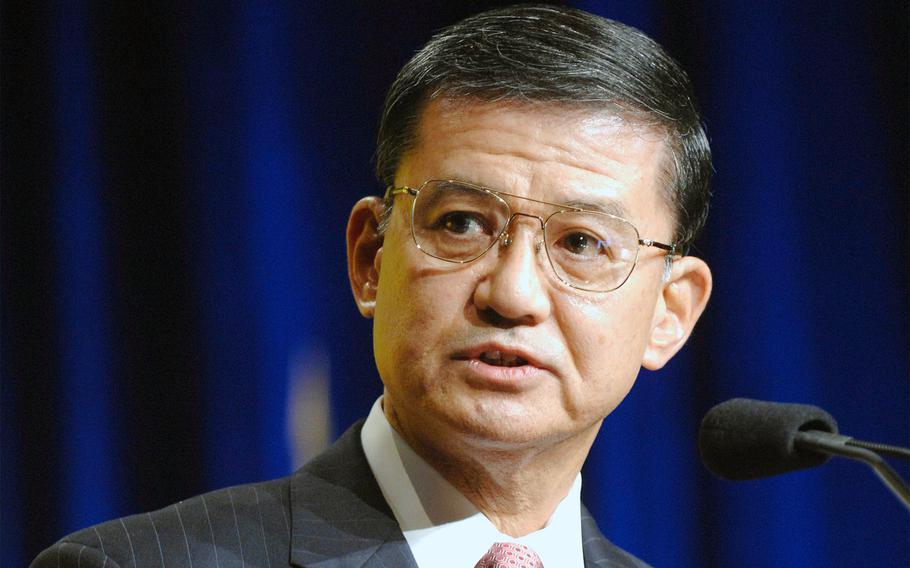
Veterans Affairs Secretary Eric K. Shinseki speaks at an event in Washington, D.C., on Nov. 3, 2009. (Michael J. Carden/U.S. Army)
WASHINGTON — Veterans Affairs Chief Eric Shinseki’s testimony Thursday on Capitol Hill appears to have done little to reassure some who have been angered by reports of deadly wait times at veteran hospitals and clinics across the country.
A group representing Iraq and Afghanistan vets said Shinseki did not restore its confidence in the VA health care system following the testimony and harsh criticism was being lobbed on social media and comment boards Friday morning.
Meanwhile, White House Chief of Staff Denis McDonough appeared on cable news following the secretary’s testimony and tried to deflect pointed questions over the continuing problems and a lack of leadership accountability at the VA.
On Thursday, Senators on the Veterans’ Affairs Committee grilled Shinseki, saying about 50 federal reports in recent years warned of problems long before a health care scandal involving allegedly falsified records in at least 10 states. In Arizona, whistleblower reports surfaced in late April that a Phoenix VA hospital kept a secret list concealing long waits for health treatment while 40 veterans died.
The “testimony from Secretary Shinseki did not restore confidence that VA senior leadership is responding with action and not just concern,” Tom Tarantino, chief policy officer for Iraq and Afghanistan Veterans of American, said in a released statement Thursday. “Our members are outraged and we need to see a bold plan to address these allegations.”
The American Legion and members of Congress have called for Shinseki to resign.
Shinseki testified that he is “mad as hell” that employees may have falsified records on VA wait times and urged patience while the department inspector general conducts a probe that may be completed by August.
On the Stars and Stripes website, comments on the news ran almost entirely negative.
“Being ‘mad as hell’ is a much better alternative to being deader than hell like the vets in Phoenix,” one commenter wrote.
Another wrote, “How many [veterans] must wait in suffering? How many must wait until they die?”
It remains unclear how many veteran patients might have died due to delays in care.
The VA health care system is the largest such network in the country. It serves 200,000 veterans each day and has 1,700 points of entry across the United States and abroad.
On Thursday, VA inspector general Richard Griffin testified that the 40 deaths reported in Phoenix may be “wildly” inaccurate. He said the IG has been combing through waiting lists throughout the VA health care system and has found 17 deaths that it is looking into.
“On those 17, we didn’t conclude so far that the delay caused the death,” he told the Senate committee. “There is one thing to be on the waiting list and other to conclude the waiting list caused the death.”
Still, the evidence so far and Shinseki’s testimony did not quell the public outrage over the reported Phoenix deaths.
On the CNN network, anchor Jake Tapper pressed McDonough, asking, “How many dead veterans do you need” to lose confidence in Shinseki’s leadership?
McDonough said President Barack Obama still supports Shinseki, who has “dramatically expanded access” over the past six years in the VA.
Shinseki “holds himself accountable,” McDonough said.
tritten.travis@stripes.com Twitter: @Travis_Tritten